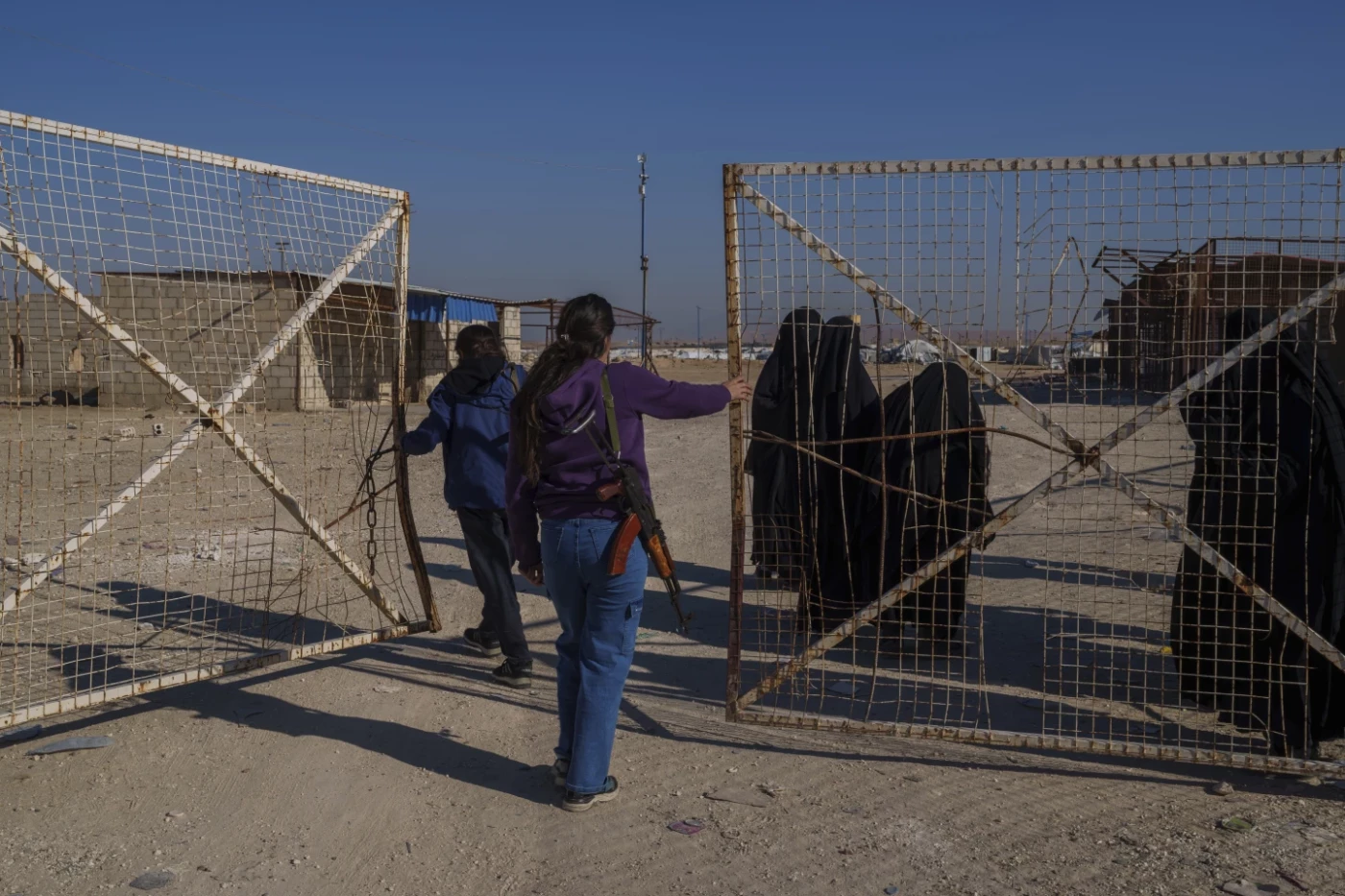ERBIL, Kurdistan Region of Iraq – Kurdish authorities in northern and northeastern Syria are working to empty displacement camps under their control by 2025, including those housing thousands of Syrians, Iraqis, and families of Islamic State fighters, an official said Tuesday.
Sheikhmos Ahmed, co-chair of the administration’s Office of Displaced Persons and Refugee Affairs, told Agence France-Presse (AFP) that officials are "coordinating with the United Nations to shut down the camps." A meeting on the plan is expected in the coming days, he said.
Since the start of the year, the administration has eased the process for Syrians and Iraqis who wish to leave al-Hol camp, the largest camp in northeastern Syria, and other sites, allowing them to return to their home regions.
The notorious al-Hol camp currently houses more than 40,000 people from dozens of countries, many of whom live in dire conditions. In 2024, the camp sheltered more than 20,000 Iraqis and 16,000 Syrians.
An Iraqi security official said 12,000 Iraqis have left the camp since 2021, while 17,000 remain.
The Kurdish-led Autonomous Administration of North and East Syria (AANES) is gradually facilitating the departure of Iraqi families from Hol and is developing a plan to allow Syrians to leave soon, Ahmed said. He also noted that officials are working to ease the return of displaced Syrians from the al-Areesha and al-Mahmoudli camps.
The AANES is coordinating with the UN refugee agency and international aid organizations, including the US-based Blumont, which helps manage al-Hol and Roj camps.
Ahmed denied that the US freeze on foreign aid was the reason for allowing camp residents to return home. He said international and local organizations are still providing support, while the administration continues to supply services to the camps.
On Friday, Human Rights Watch warned that the US aid freeze is worsening “life-threatening conditions” in Hol and Roj, which house thousands of families linked to Islamic State fighters.
Since the defeat of the Islamic State in 2019, the AANES has urged foreign governments to repatriate their nationals. Despite repeated appeals and warnings from humanitarian organizations about deteriorating conditions in the camps, most countries have refused to take back their citizens.
“Those unlawfully detained in Hol and Roj camps should not be left stranded indefinitely,” said Human Rights Watch researcher Hiba Zayadin. She called for their “dire situation to be included in discussions about Syria’s future.”
The US-backed, Kurdish-led Syrian Democratic Forces (SDF) is the administration’s military wing that controls large parts of northeastern Syria. It currently holds talks with Syria’s transitional government.
Damascus has dissolved all armed factions and reaffirmed its opposition to any federal division of the country, despite the Kurds establishing an autonomous administration in their regions years ago.



 Facebook
Facebook
 LinkedIn
LinkedIn
 Telegram
Telegram
 X
X


